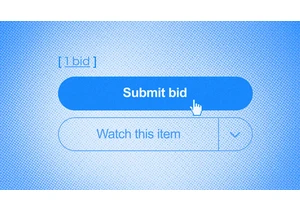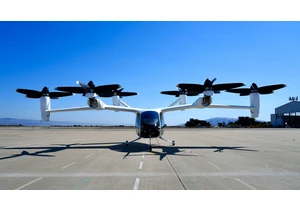Ukraine is winning the information war, if not the ground war, in its conflict with Russia. On social media, the Ukrainian people are seen—and rightly so—as human, brave, sympathetic, and, most important, right. This impression has been helped by the savvy social media game of Ukrainian President Volodymyr Zelenskyy. But Vladimir Putin cares more about how his move into Ukraine is playing with the Russian people. As the conflict goes on, the level of Russian support may determine the timeline Putin and his military must play by. To get a better understanding of the Russian media sphere I spoke with Ian Garner, an expert on information flow in Eastern Europe whose new book, Stalingrad Lives! Stories of Combat & Survival, is slated for release by McGill-Queen’s University Press in the fall. The Russian government communicates to the Russian people via the social media accounts of state-run news agencies such as RIA Novosti and the Defense Ministry’s television channel, Zvezda. The government has control over its messaging on Russian social media networks such as Odnoklassniki and VKontakte, Garner tells Fast Company, but has less control over its output on international social networks such as Facebook and Telegram. Recently the Russian telecommunications regulator, Roskomnadzor, said it would “limit access” to Facebook in Russia after the social network applied fact-check labels to four Russian state social media accounts. Garner spoke with Fast Company about what the information war looks like inside Russia right now and how Russians are viewing this conflict. Fast Company: What is the response of the Russian people to Vladamir Putin’s case for war in Ukraine? Ian Garner: We’re way too early in the war to be able to figure out any exact numbers on this, but I think what we’re seeing is probably like a classic bell curve in terms of response to it. There are a small number of people right now who are very pacifist, anti-war. Those are the people that you’ve seen going out and protesting in Moscow and other cities. These are the people who are posting quite openly on social media. At the other end there is a group of people who are absolutely committed. These are pro-Putin, pro-regime people spouting the stuff that we’re hearing in the West. That is, “Ukraine is filled with Nazis. We have to go in and destroy them. They’re going to kill our children. They’re going to kill our brothers, otherwise, you know, if we don’t go in, everything is going to hit us.” What I am not picking up on is the majority of people in the middle embracing this narrative in a big way. They either seem uninterested in the war, and it’s not happening because it’s not really directly affecting them yet, or they’re offering sort of tame criticism of the war. And when we’re used to, especially in the West, having these vociferous and polarized public debates, tame criticism seems like not much at all, but in the Russian information sphere, when you see that it’s meaningful. Since it’s very early on, that curve you just described could change, right? Absolutely, that could change, and I think what is going to be really interesting to watch over the coming weeks and months—because I think this is going to play out quite slowly—is what happens to that tranche of people in the middle of the bell curve. What are the factors that will influence the opinions of those people in the middle? The Putin propaganda of the early 2010s was built on the narrative that the ’90s were over; the ’90s were wild and awful, and it was financial crisis. Everybody struggled. Putin said, “Trust me, and I’ll get you the foreign trips. I’ll get you the nice tech. I’ll get you the phones and the computers. You’ll live pretty comfortably. Don’t worry about the politics, I’ll see to that.” And people turned a blind eye to what was going on. But with the sanctions that we’re seeing now what’s going to happen next? Are people going to be as content once they start seeing these videos of Russian speakers who are being killed [in Ukraine]? Russian-speaking celebrities who are posting about their families who are stuck in Ukraine and dying? Are people going to be so eager to embrace the government narratives?
Russia's number one YouTuber, Yury Dud (pronounced more like Yuri Dude), posts an thorough teardown of the war against Ukraine, finishing with: "This war must end immediately." It's so long, it's two parts on Telegram: https://t.co/Qb5wyGnJZb https://t.co/9K85kaNFZd — Kevin Rothrock (@KevinRothrock) February 28, 2022
Is the Russian government’s message that it is being forced to act because of the threat of Ukraine potentially becoming a member of NATO? Absolutely, that’s at the center of the messaging right now. A lot of this is historical. A lot of the Russian propaganda over the last few years has focused on summoning up the memory of World War II, when the Soviet Union bravely defended the world from the Western invaders, from Germany, and sacrificed 25 million people to save us all. And so now they’re saying here is another threat from the West, the West is coming back. The West is going to take your brothers and your children and your mothers away. This is a message that people seem to generally embrace, and we saw some polling before the invasion that suggested that people were buying into this. People do believe this message around NATO. They are worried about NATO expansion.
I’m watching official Russian propaganda barrage on social escalating rapidly today. Minute by minute they are building a case to raze Ukrainian cities. It is appalling to see it unfold. https://t.co/v6EJw1AuRj — Dr. Ian Garner (@irgarner) March 1, 2022
But what’s interesting is if you watch Putin’s speeches, which the government attempted to widely share but I would say mostly they’ve been ignored or roundly mocked, there is this coupling of that central [NATO] message with a random assortment of historical references—things that are clearly not true. He’s quite inconsistent. He’s just throwing anything at the wall and hoping something sticks. I suspect that they’re trying to monitor which of these messages are working best, probably by monitoring social media likes and shares and comments. Then they’ll stick with the best message. But I think they’re being outflanked by Ukraine’s much smarter messaging. So those are the official government channels, but then you have just regular people, people from everywhere, posting various things about the conflict. And it seems to me that most of that stuff is very pro-Ukraine. I think that the channel to watch, inside of Russia at least, is Telegram, because that’s where information is flowing relatively unfettered. I think that’s where any sense of organized opposition—although who knows if there will be organized opposition from all of this—that’s where it’s going to come from. Because the Russian social media networks Odnoklassniki and VKontakte, those are very heavily monitored by the government. The [Russian] government tried to shut down Telegram a few years ago because they were afraid of messages being carried on Telegram, and they essentially failed to do it. They didn’t seem to have the political will. It’s widely used by Russians and now you wonder if they’re regretting it. I know you’ve been monitoring Telegram. Is it possible to get a sense of how much of the content is pro-Ukraine versus pro-Russian? The problem is that it is so fractured. There are just thousands of channels out of there. But what we can say for sure is that these videos from Russian celebrities who are coming out against the war—these videos are being widely shared, and these are people that ordinary Russians respect. They trust them. And they’re being shared on Telegram. What about Instagram? I’m assuming that these celebrities have different accounts on different channels. Absolutely. Instagram is harder because it’s a much more public space than Telegram, right? What I am seeing on Instagram is that any mention of the war instantly flares up into a big trolling kind of flame war. The popular bloggers are posting opinions back and forth and it’s blowing up real fast. It’s not necessarily always aggressive. The discussion and debate is there. The discussion and debate is absent on state television and in state newspapers and on more state-friendly social networks like Odnoklassniki and VKontakte. It’s on Instagram because the government can’t control the space so well. The debate is at least happening in the discussions around the topic. What are your thoughts about Zelenskyy’s social media game? It’s no surprise by this point that this guy is media savvy. He’s out there, he’s a TV star. He knows how to manipulate the media. He knows how to put a quality production together. It’s just really speaking to this idea of creating the myth of the nation. If the Russians have a poor justification for war—because this whole NATO thing is pretty tenuous at best—they may have won people over now, but when the sanctions start to bite, when the bodies start turning up and grandmothers are crying over bodies as Russian boys are returned home [it may be another story]. Ukraine is essentially making this myth of itself as the plucky defender of freedom and European and progressive values in this post-Soviet space. And they’re doing an extraordinary job of it. You can just imagine in 10 or 20 years from now, people are going to be looking back to this time and watching these videos. They’re going to be talking about this as the moment when the nation became a nation. These national myths are always born in war.
Autentifică-te pentru a adăuga comentarii
Alte posturi din acest grup


Meta is testing a feature that will let Facebook users browse eBay

“Okay it’s happening… are we switching to Lemon8 or what’s the plan?” posted one TikTok user back in December. Wi

Meta said Wednesday that it will allow some Facebook users to view eBay listings on its Marketplace service, as it tries out a possible way t

Over the past 17 years or so, I have happily paid for hundreds of e-books—everything from reference works to history to novels to comics. Having immediate access to all of them on a device that fi


Japan on Wednesday linked more than 200
